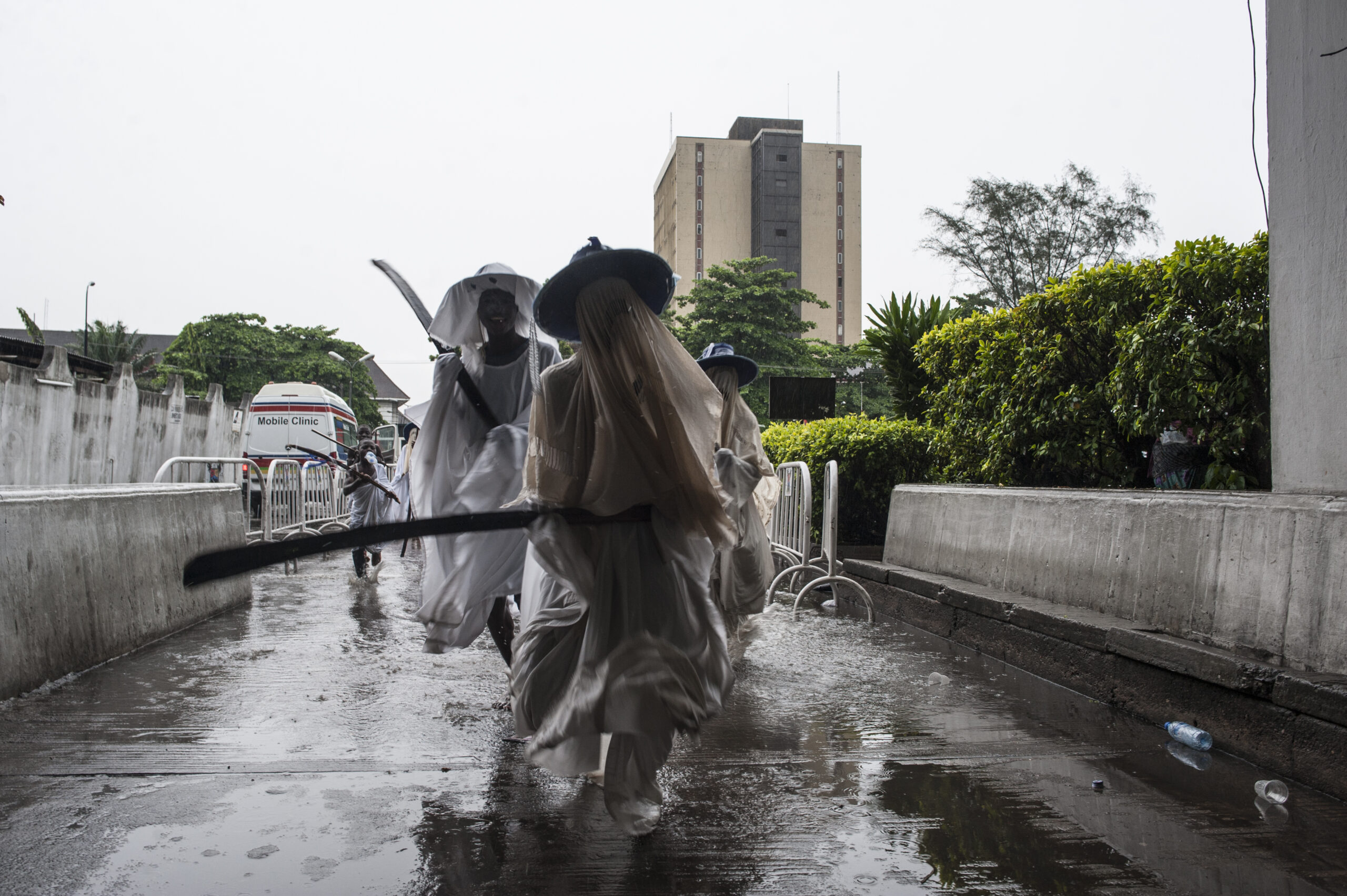Eyo masqueraders dance as they arrive at the Tafawa Balewa Square in Lagos on May 20, 2017. The white-clad Eyo masquerades represent the spirits of the dead and are referred to in Yoruba as "agogoro Eyo. The origins of the Eyo Festival are found in the inner workings of the secret societies of Lagos where the masquerades ensure safe passage for the spirit of Kings and notable Chiefs into the afterlife. / AFP PHOTO / STEFAN HEUNIS
The King Kosoko Royal Family and Oloja Chieftaincy Family of Lagos have condemned the misrepresentation of the Adamu Orisa and Eyo cultural heritage in a film titled, ‘Gangs of Lagos’.
The Oloja-elect, Abiola Olojo–Kosoko, in a statement, took exception to the portrayal of the cultural heritage as gun–wielding and violent deities, and as a means to forcefully acquiring power and control in society.
He said, “The King Kosoko Royal Family and the Oloja Chieftaincy Family of Lagos condemn in totality the movie called, ‘Gang of Lagos’, for using the Adamu of Orisa and the Eyo paraphernalia in a way that does not depict the true history and spirit behind the Eyo play.
“The King Kosoko Royal Family and the Oloja Chieftaincy Family of Lagos will join hands with the entire people of Lagos whose pride and heritage have been desecrated to fight with all legal and traditional means to call those involved to order.
“The Aloworo of Eyo, who is the Akinsinku of Lagos, and all the other elders in Lagos have been responding to the gross misrepresentation and they are waiting to take other necessary steps which have been put together by the entire Lagosians whose heritage has been given a bad name. The Kosoko palace and family are fully with them in this regard.”
Setting the record straight, Olojo–Kosoko said that Adamu Orisa was only staged to traditionally usher departed souls into the realm of the dead and not for social engagements.
He said, “There is nowhere in the history of Lagos where the Eyo is seen carrying a gun or machete. The only object that Eyo carries is Opambata, the beautiful white regalia to covers its body and the Aga (hat), all of which made it a special deity with reference point which Lagos State as a whole is known with as an insignia to promote culture and tradition.
“Unfortunately, somebody has come to use it to promote gangsterism. We would fight and prevent this from continuing. We are not saying that we are against what they are doing, rather, what we are saying is that they should consult with the people in charge of such heritage.
“Adamu Orisa and Eyo are not for celebration of birthdays and other social engagements that celebrate people that are still alive. It is being used to celebrate the dead and ushering their spirits for
a better continuous existence in the realm of the dead. It is for cleansing. The process that is involved takes a minimum of three months. The ritual rites and necessary procedures must be performed.”
In this article

